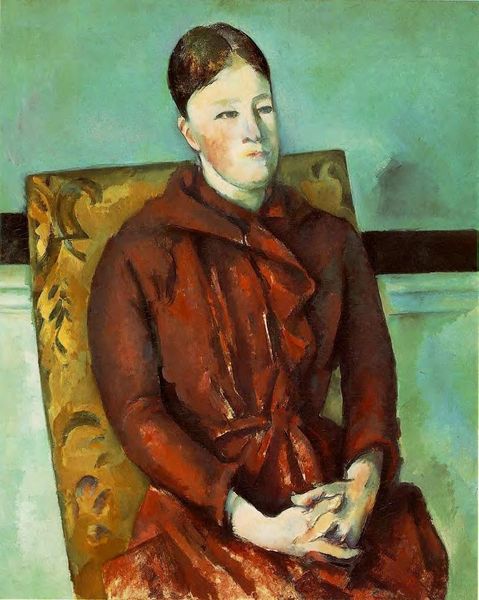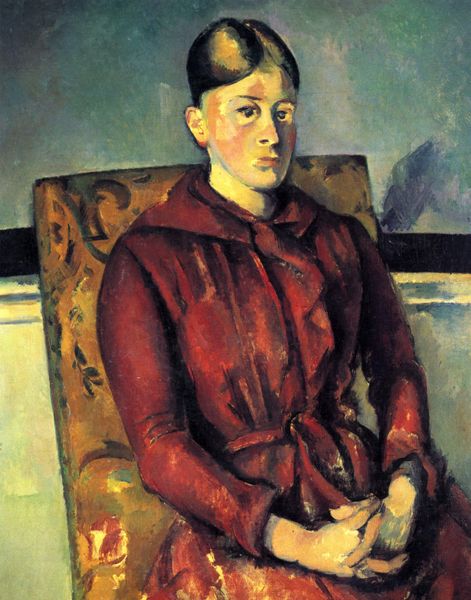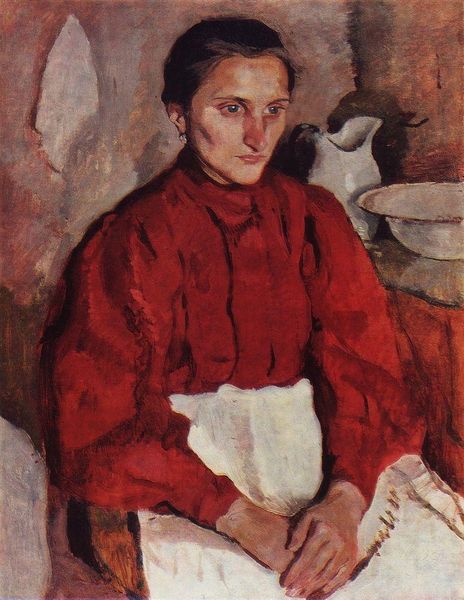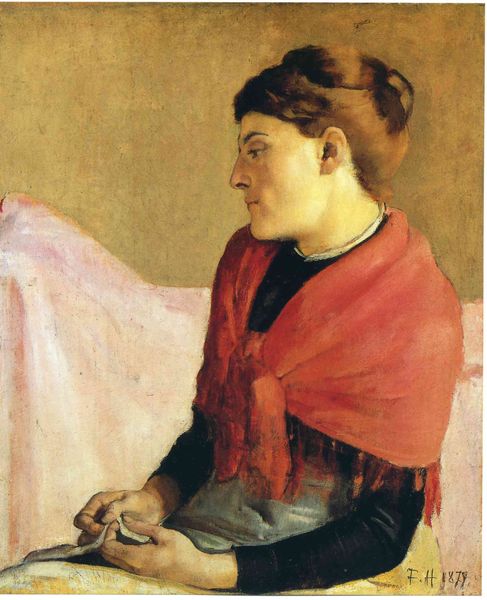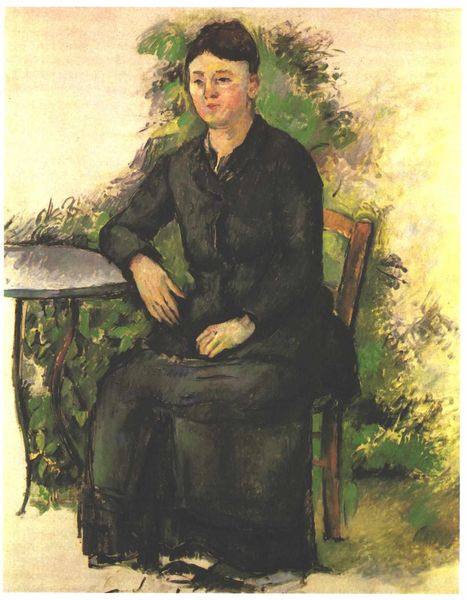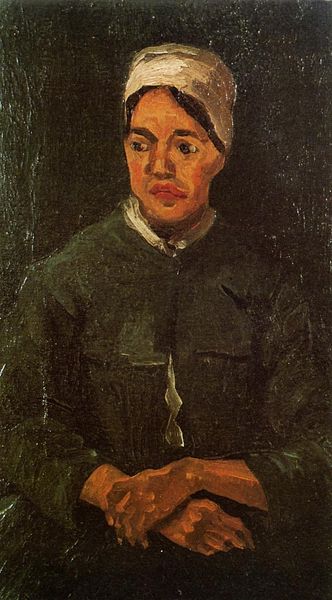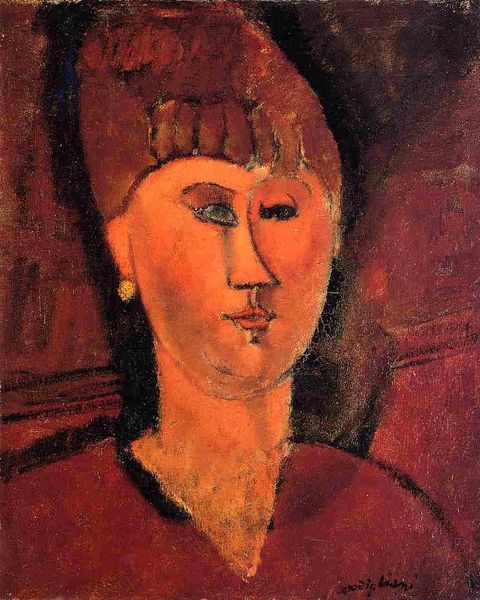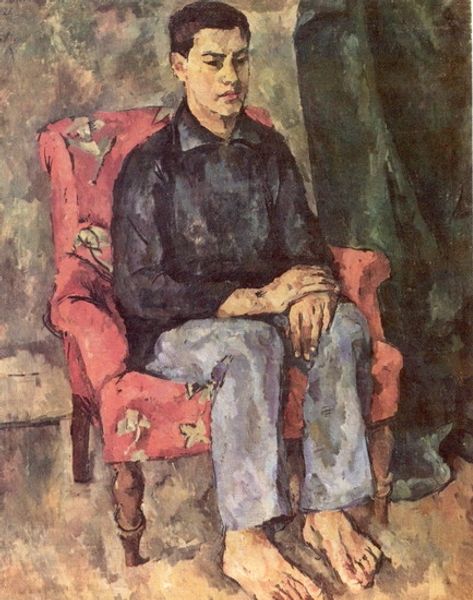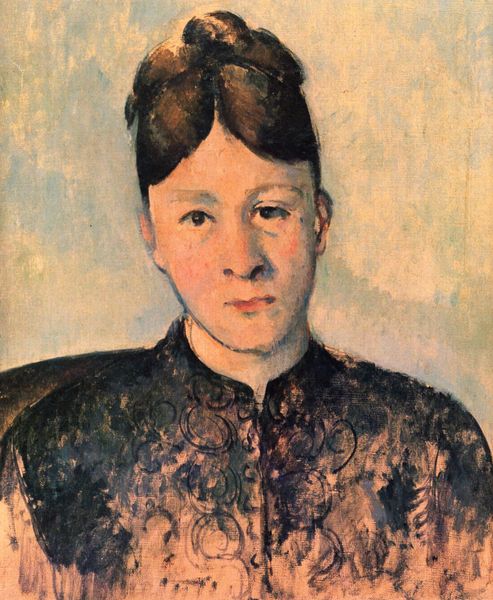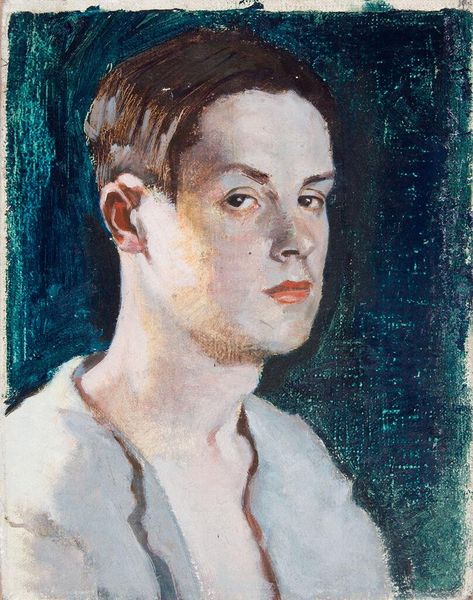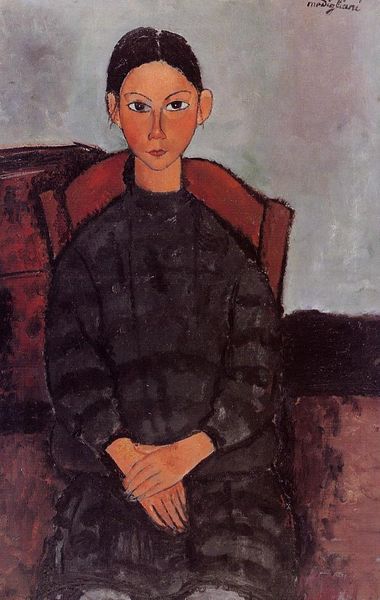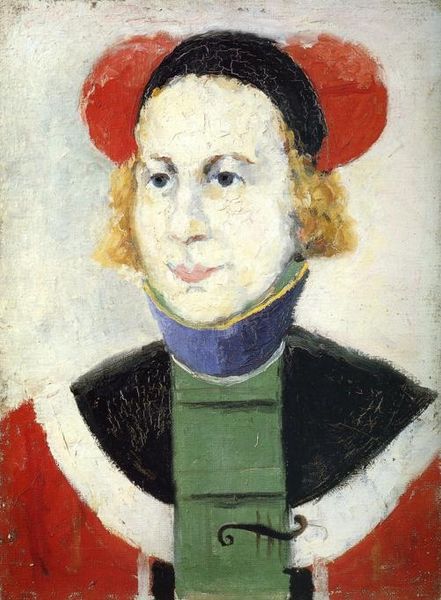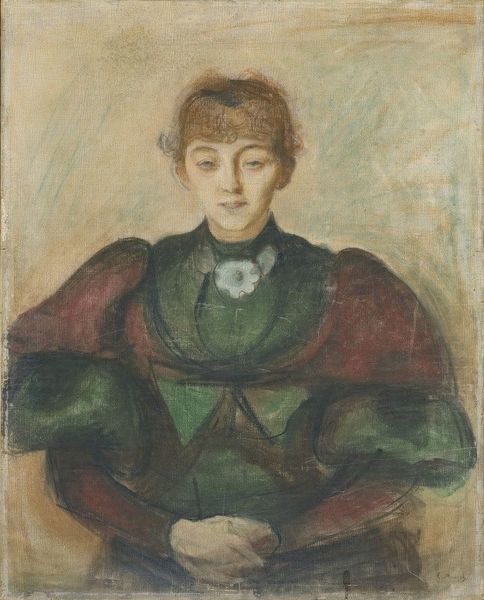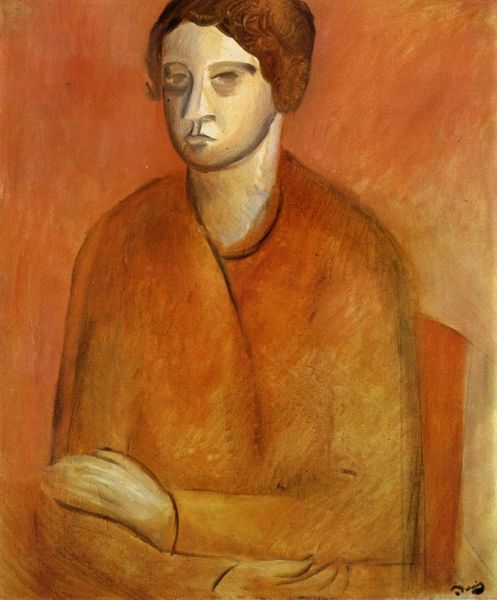
painting, oil-paint
#
portrait
#
self-portrait
#
painting
#
impressionism
#
oil-paint
#
post-impressionism
#
modernism
Dimensions: 89 x 70 cm
Copyright: Public domain
Paul Cézanne painted this oil on canvas portrait of his wife, Hortense Fiquet, sometime in the late 19th century. This image encapsulates the complex social dynamics within the art world of late 19th-century France. Cézanne, working outside the established Salon system, sought to redefine painting. He was, in effect, critiquing the very institutions that validated artistic success. This portrait, with its deliberate brushstrokes and focus on form over conventional beauty, is a statement against the academic ideals of his time. Consider, too, the role of Madame Cézanne. She is not depicted in a way that emphasizes her social status or physical allure. Instead, she is presented as a solid, almost stoic figure. What does it mean to present one’s wife in this way? To fully appreciate Cézanne's work, we need to examine exhibition records, critical reviews, and even the artist’s personal correspondence to understand the forces that shaped his vision and the artistic institutions he challenged.
Comments
No comments
Be the first to comment and join the conversation on the ultimate creative platform.
